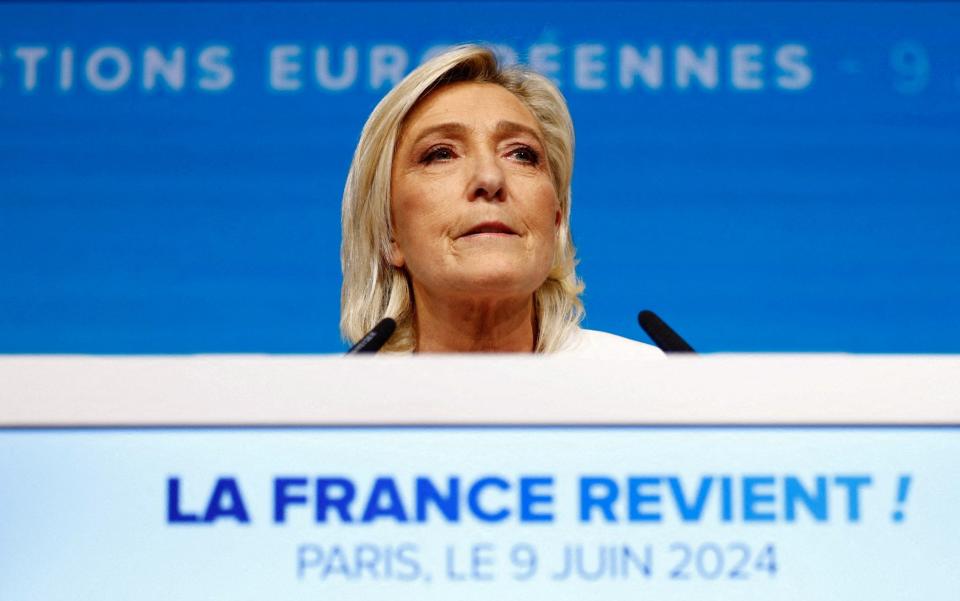London traders bet against French bonds as debt crisis fears grow

City traders are selling off French bonds amid mounting fears of a debt crisis in Europe’s second-largest economy.
Investors are pulling money out of French government debt ahead of a prospective victory for Marine Le Pen’s hard-right National Rally at the upcoming snap election.
A sense of alarm has spread across French markets ever since Emmanuel Macron announced the dissolution of Parliament last week.
This culminated in Bruno Le Maire, France’s finance minister, warning that the country could face a “Liz Truss-style scenario” if Ms Le Pen’s low-tax, high-spending party succeeds at the polls.
Alex Everett, an investment manager at Abrdn, said he has been offloading French bonds amid the recent bout of political turbulence.
He said debt markets “are quite rightly pricing in the political and credit risk premium that France has brought upon itself across this week”, adding that it is a “mess that Mr Macron and by extension Mr Le Maire have caused themselves”.
As a result, Mr Everett said Abrdn is swerving French bonds in favour of safer investments elsewhere in Europe.
It comes as the French government’s borrowing costs soared late last week, with interest rates on 10-year debt matching that of Portugal for the first time in 20 years.
This reflects a reversal in the faith investors had previously held in the French economy, where borrowing costs have long been closer to that of seemingly safe nations, such as Germany.
Iain Stealey at JP Morgan Asset Management said the political instability has “reinforced our negative outlook on France”.
He has predicted that debt investors will steer clear of the nation, particularly after ratings agency S&P downgraded France’s credit score this month.
Mr Stealey said: “This lower rating and potential further deterioration in France’s budget deficit may keep other bond investors on the sidelines.”
Frank Gill at S&P said the negative market reaction may be enough to force French politicians to water down borrowing pledges.
He pointed to a similar situation in Italy six years ago: “One example of this is the Government that came into power in Italy in 2018, which promised a lot of fiscal expansionary policies. But when they came up against market pressures and the stability and growth pact rules, they quite quickly backed down.
“Whatever government comes into power in France has a lot of debt to refinance and they are going to have to do that in the market.
“Depending on what their fiscal plans are, the market will assess and judge those plans accordingly. We don’t think France has a lot of fiscal space.”
Gordon Shannon at Twentyfour Asset Management said the crisis has been building for some time: “Like the UK in 2022, France isn’t heading into this situation from a position of strength.
“The EU warned it last November to adjust its spending plans which breach the bloc’s rules.”
Should Mr Macron lose the snap election to either the hard left or hard right, Mr Shannon warned of the potential impact on France’s economy.
He said: “Their unfunded spending plans ruin any pretence that French national debt can be considered on a path consistent with creditworthiness.”
Should France encounter a debt crisis, economists are warning that the European Central Bank is unlikely to intervene.
Holger Schmieding, chief economist at Berenberg Bank, said the ECB’s tools “are designed to protect countries that are on the right track”.
He said: “If there is a financial crisis, which is not our forecast, we would probably see the crisis playing out until something gives.
“What most likely would give is Ms Le Pen, who would have to cave in [on her plans] in order not to wreck her chances of ever being elected as president.”

 Yahoo Finance
Yahoo Finance 